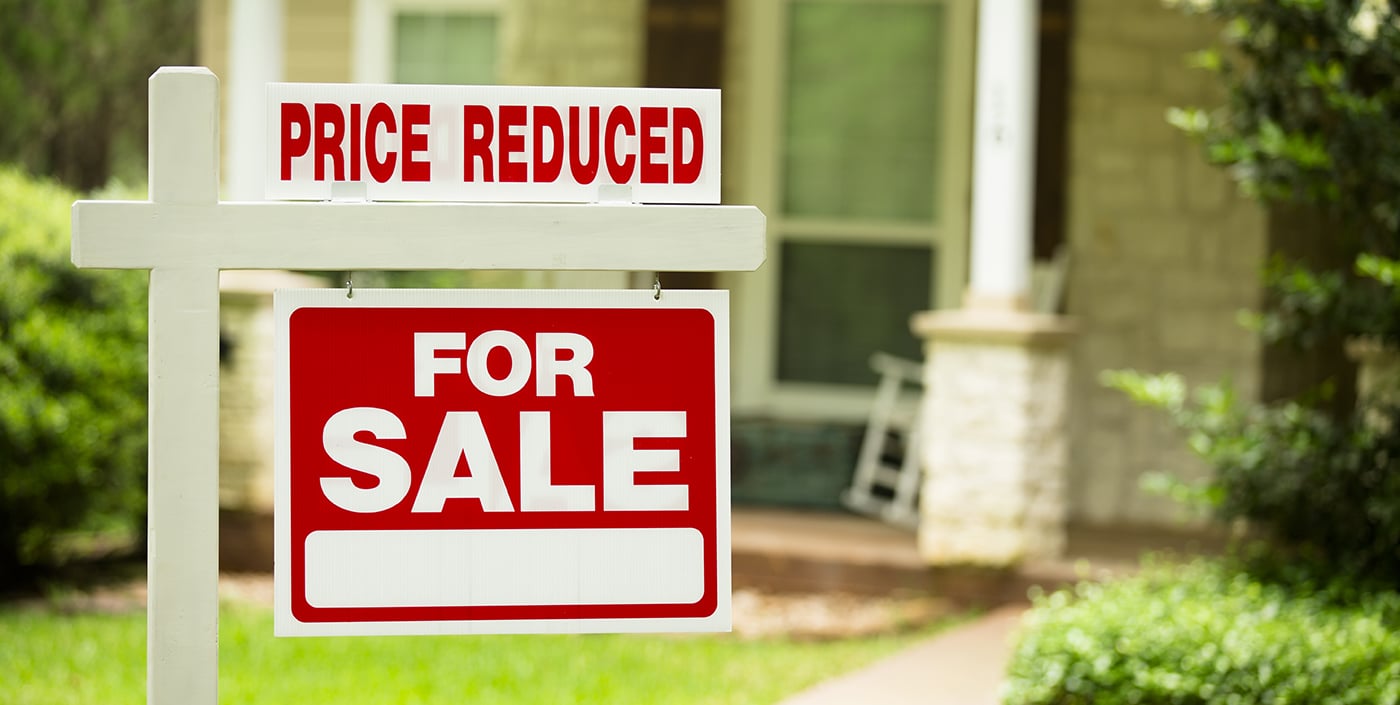When contemplating the purchase or sale of a home, a skilled real estate agent is indispensable. In addition to negotiating on your behalf and advising you on the best course of action, you will spend a substantial amount of time contacting them for updates or information regarding the real estate transaction. In many instances, it can feel as if you are wedded to them, and as in any healthy relationship, trust is of the utmost importance.
Certain real estate agents have a horrible reputation. Since compensation is based on commissions, some homebuyers and sellers are concerned that their agents will pressure them to accept a transaction that may be too high or too low, thereby leaving behind significant amounts of money. Therefore, it should come as no surprise that anyone involved in a real estate transaction has many questions and concerns about how to find a trustworthy realtor – regardless of whether they will be acting as a buyer’s agent or a seller’s agent.

The good news is that licensed real estate agents must adhere to a stringent code of ethics and operational requirements. In addition, they must attend classes, including periodic course refreshers, and pass an examination. Before deciding to hire a candidate, the first step should be to confirm that the individual meets current licensing requirements and is a member of any professional organizations, such as the national association of realtors.
Here are five helpful strategies for identifying and selecting an honest and trustworthy real estate agent, so you can confidently buy or sell a home.
Contact Your Personal Network Regarding Referrals
How to locate a reputable real estate agent typically begins with casting a wide net so that you have many potential candidates from which to choose. Fortunately, there are likely a large number of individuals in your vicinity who have participated in real estate transactions and can provide you with feedback on local realtors, whether positive or negative.

The value of word-of-mouth in determining whether a real estate agent does a good job cannot be overstated. If they reside nearby, your acquaintances and family are frequently a valuable resource. You may also use Google to verify your sources; however, bear in mind that online reviews can be skewed by extremely positive or negative experiences and may not provide an accurate representation of a real estate professional’s work.
If you do not know anyone in the area you are considering moving to — for example, if you are relocating for work — it can be difficult to locate a reputable real estate agent. You may need to rely on directories and listing services such as Zillow to discover the names of local real estate agents. You can also reach out to your future neighborhood via Facebook groups or local message boards such as Nextdoor in order to find the ideal real estate agent and obtain direct feedback on the candidates you are considering.
If feasible, you should also attend open houses in your preferred neighborhood to meet directly with real estate agents and observe them in action – whether you are considering purchasing a home or seeking a listing agent. Keep in mind, however, that the individual who will be present during the showing will be the seller’s agent. If you are interested in purchasing the home being shown, the agent will have dual agency and must represent both your interests and those of the vendor throughout the transaction. This situation could contribute to a conflict of interest, even though it is legal, particularly during the negotiation process.
Inquire with other real estate professionals, such as your title company, mortgage lender, or other real estate agents (if you are relocating), if they have any feedback on potential candidates or names they can recommend.
Find a Realtor Who Is Familiar With Your Local Market
Real estate is dependent solely on location, location, and location. If you want to have faith in your real estate agent, he or she must have in-depth local knowledge, which can only be gained through years of living and working in the area. In other words, even if you have glowing recommendations for a particular candidate or had a positive experience with your previous real estate agent, it may be pointless if they do not operate in the area you are interested in.

They should have access to specific real estate data, such as the average length of time properties remain on the market or the price range for comparable houses in the area. The most essential aspect, however, should be finding someone who can provide guidance on other, more subjective topics. For example, parents of young children may want to know which schools are the best rated and offer an excellent afterschool program with a broad range of extracurricular activities, or if the neighborhood they are considering have access to playgrounds or are family-friendly.
They should be aware of local trends, such as which areas are on the rise and which are the most desirable. There may be substantial price differences between properties based on factors that are not always readily apparent to the untrained eye. A reliable real estate agent should be able to explain why, so sellers can price their home appropriately, or provide a proviso if you are interested in purchasing a home that appears unusually inexpensive for the area.
This knowledge is essential in an excellent real estate agent, particularly if you are unfamiliar with the area.
Conduct Multiple Real Estate Agent Interviews
If you have followed the two stages preceding this one, there is a good chance that you have identified a couple of potential real estate agents who may be a good fit and have an excellent reputation in your community. You may be tempted to employ one of them immediately, either out of laziness or because their stellar reputation stands out. However, selecting a trustworthy real estate agent requires more legwork. Keep in mind that any extra work you put in at the outset will likely pay off in the long run, and that errors made in haste can have dire long-term consequences.

The best course of action is to conduct in-person interviews with several of the highest-rated candidates. You must discover a real estate agent you can trust on a personal level, as well as one with a sterling professional reputation. They will be aware of your family circumstances, aspirations, financial information, etc. A realtor who is ideal for one buyer or vendor may not be compatible with another party.
You will need to pay close heed to their mode of communication. Someone who is direct and businesslike may not be the best match for a first-time homebuyer who, for example, requires additional information and reassurance about the steps to take. On the contrary, seasoned homebuyers and vendors may favor someone who is efficient with their time. Additionally, you may have specific requirements that few real estate agents can meet. For instance, if you are settling an estate or dealing with an elderly vendor, it may be best to work with a senior real estate specialist who can assist you throughout the entire process.
A reliable real estate agent must also be highly responsive from the outset. If you are already irritated when attempting to reach your agent before the home buying or selling process has begun, you will be extremely uneasy when the stakes are higher and time is of the essence.
Inquire Precisely During the Interviewing Process
The best way to find a real estate agent who may be a good fit for your objectives is to ask very detailed questions that enable you to evaluate the candidate’s dependability and trustworthiness.
Inquire precisely about their professional history and market experience in the local area. How many years have they been a real estate agent? They exercise on a full-time or part-time basis. What are their credentials? Do they specialize in a specific category of buyer or seller (for example, investors, first-time buyers, or military relocation)?
It would be best to investigate their local expertise, both as a real estate professional and as a resident in the area. How long have they resided in the area you’re contemplating? Do they have firsthand knowledge of the local education system? Which communities would they suggest based on your preferences and budget? Are some regions more secure than others? How does the local commute appear?
You will also want to know precisely how they intend to assist you in the home buying and selling process for the best possible outcome. Which listing systems are used in addition to the local MLS? How will your property be marketed? Are they intending to host open houses? What is the company’s pricing strategy? Will they send you potential properties of interest, or will you need to periodically look for new listings?
Be Sincere Regarding Your Expectations
Mutual trust must be established between a client and their real estate agent. If you want your realtor to conduct the real estate transaction in a way that makes you feel at ease and allows you to be completely satisfied with the outcome, you must be very explicit about your expectations, goals, and limitations. For instance, if you overestimate your budget, your real estate agent will only send you listings that are out of your price range, which will frustrate you. You can work more efficiently with your agent if you are truthful, even if you are uncertain of finding a home that meets all of your criteria within your budget. For instance, they may suggest alternative locations that are more affordable.
Be wary of real estate agents who make extravagant claims. A credible real estate agent should be able to substantiate their claims with data and help you adjust your expectations if they are unrealistic. You should be forthright about your situation if it may influence your decision during the home purchasing and selling process, such as if you need to move by a certain date, are going through a divorce, or are at risk of foreclosure. By keeping your real estate agent in the process, you can use their knowledge of the local market to find a solution that is satisfactory for all parties involved.





